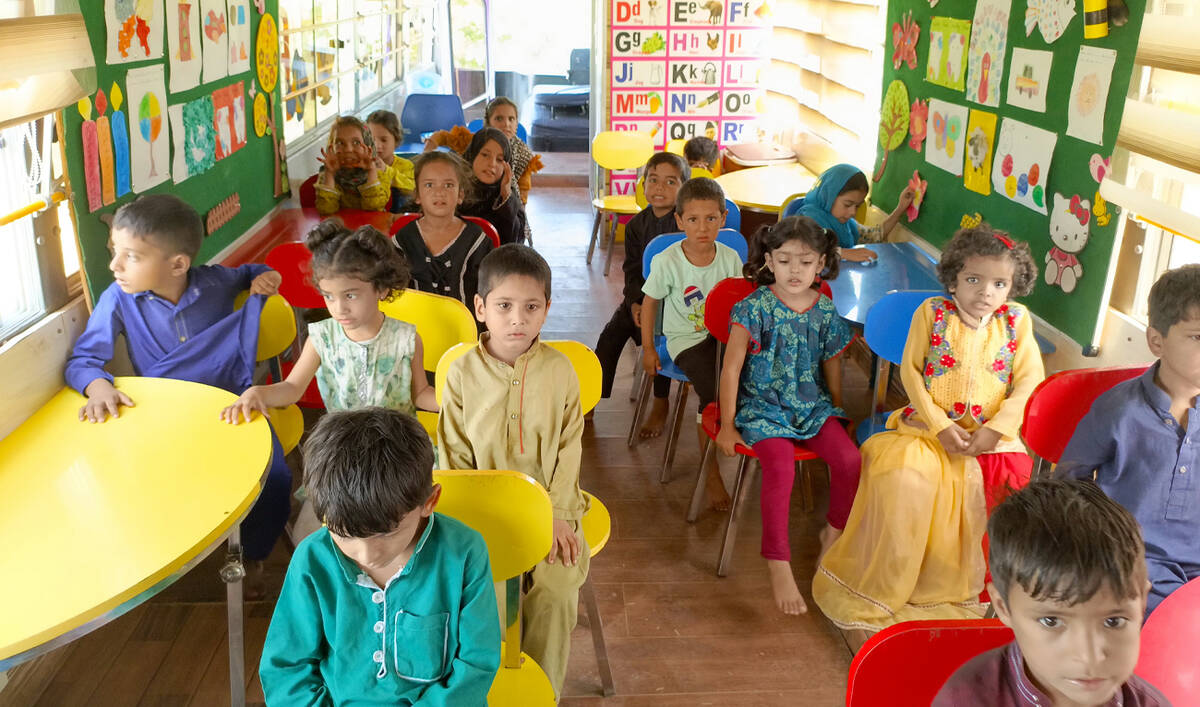ISLAMABAD: PakistanŌĆÖs army chief, Field Marshal Asim Munir, has stressed the significance of ŌĆ£good governanceŌĆØ and people-centric development to ensure durable peace in PakistanŌĆÖs insurgency-hit Balochistan province, the Pakistani military said on Saturday.
Balochistan, PakistanŌĆÖs largest but most impoverished province, has been the site of a long-running insurgency that has intensified in recent months, with separatist militants frequently attacking security forces, government officials and installations and people from other provinces.
Apart from separatist outfits, religiously motivated groups such as the Pakistani Taliban and Daesh also maintain presence in Balochistan, where nine Pakistani soldiers and 50 Pakistani Taliban militants were killed in separate incidents this month, according to officials.
The Inter-Services Public Relations (ISPR), the Pakistani militaryŌĆÖs media wing, said on Saturday that Field Marshal Munir visited BalochistanŌĆÖs Turbat to review the prevailing security situation, assess development initiatives, and reinforce coordination between military and civil institutions.
ŌĆ£COAS (chief of army staff) was given a comprehensive brief on the security dynamics, including threat perspective and successful operations against Fitna Al-Hindustan (Indian-sponsored militants), ongoing development projects, and efforts to enhance socio-economic conditions in southern Balochistan,ŌĆØ the ISPR said.
ŌĆ£During interaction with CM Balochistan and representatives of the civil administration he highlighted the need for good governance, infrastructure development, and the importance of inclusive, people-centric progress.ŌĆØ
In recent months, Islamabad has frequently accused India of backing militant groups and Afghanistan of allowing the use of its soil for attacks against Pakistan. Kabul and New Delhi both deny the allegation.
During his visit, Field Marshal Munir reiterated Pakistan ArmyŌĆÖs resolve to stand shoulder to shoulder with the people of Balochistan in their pursuit of peace, prosperity, and sustainable development in Balochistan, according to the ISPR. The army chief appreciated the security forces for their role in ensuring peace and stability in the region under challenging circumstances.
ŌĆ£He emphasized the significance of joint civil-military efforts in addressing the challenges faced by the people of Balochistan and reaffirmed unwavering support for all initiatives aimed at improving the southern BalochistanŌĆÖs socio-economic development,ŌĆØ the ISPR added.
PakistanŌĆÖs military has played an outsized role in national affairs since independence in 1947, including periods of direct rule after coups in 1958, 1977 and 1999, when General Pervez Musharraf toppled then-Prime Minister Nawaz Sharif, the elder brother of incumbent PM Shehbaz Sharif.
Even under elected governments, the army is widely considered to be the invisible guiding hand in politics and in shaping foreign policy, security strategy, and often key aspects of governance.
Earlier this year, PakistanŌĆÖs defense minister Khawaja Asif described the countryŌĆÖs governance as a ŌĆ£hybrid modelŌĆØ in which military and civilian leaders share power, in a rare public admission by a serving Pakistani government official that took on added significance amid the army chiefŌĆÖs solo visit to the United States this month and an unprecedented meeting with President Donald Trump.
ŌĆ£This is a hybrid model. ItŌĆÖs not an ideal democratic government ŌĆ” So, this arrangement, the hybrid arrangement, I think [it] is doing wonders,ŌĆØ Asif said in June, adding that the system was a practical necessity until Pakistan was ŌĆ£out of the woods as far as economic and governance problems are concerned.ŌĆØ
The defense chief argued the long-running political instability and behind-the-scenes military influence in earlier decades had slowed democratic development, but the current arrangement had improved coordination.



















